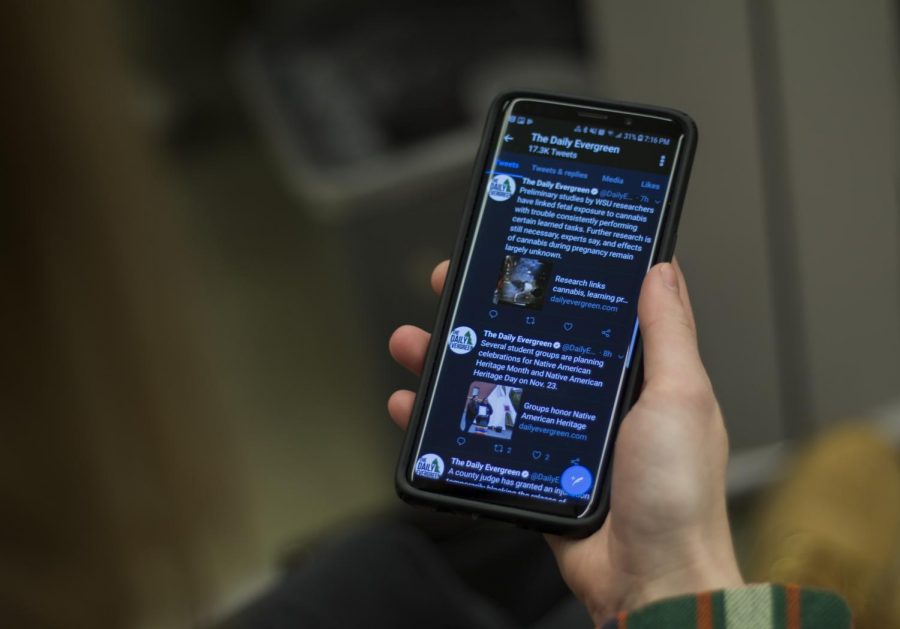Cultivate thought within a supersaturated world
News, social platforms are distinctly different, people should reflect
OLIVER MCKENNA | EVERGREEN PHOTO ILLUSTRATION
The wealth of digital information is overwhelming. Reflecting on the content you consume will help you analyze it and ensure it is benefiting you.
November 14, 2018
Just living in a world so full of information and entertainment gives me a headache sometimes. The sheer volume of content flying at our faces is staggering and can be overwhelming. This volume hinders our ability to process all of it properly.
This abundance of information springs forth thanks to the internet. Now it’s easier than ever to get instant access to almost any piece of information ever recorded. It’s all just waiting there to be learned.
Lawrence Pintak, professor of communication at WSU, has dealt with this.
“We want information because it’s there,” Pintak said. “We all have the option, so now we are information junkies. We all have our place on the internet to go.”
The effect this has on our society is more than apparent. People bounce from idea to idea and go down bizarre trails on the internet.
“It has drastically shortened our attention span,” Pintak said. “We get sucked into rabbit holes and focus on the minutia rather than the big picture.”
Companies make it their job on social media and throughout the internet to be the most interesting thing people look at. They create sensational headlines and aggressive algorithms to push their content onto the average person.
What this leads to is a culture where media organizations are constantly stealing our attention. When someone scrolls through their feed, their attention is tugged by everything on the screen, so much so that our feeds are just filled with sensational stories.
“Our level of stress as a society is rising,” Pintak said. “We’re all watching these endlessly ramped up stories. Our outrage climate is caused by people not contemplating. If only we took 10 minutes to think before sharing.”
Sometimes it feels like people are more likely to share a story than read it because many people share stories that seem totally outlandish or pander to a specific audience. We have conditioned ourselves to react immediately once we see something.
This conditioning is built up by the fact that our attention span is so limited. A recent study has shown that our attention span is shorter than that of a goldfish. Goldfish lose focus at nine seconds while people in this study lost it at eight seconds, according to a Time Magazine article.
We only see each event for a very short amount of time, and instead of stopping to reflect on our reactions we usually just move on to the next story.
“Because of this avalanche of information, our attention span is drastically reduced,” Pintak said. “We can’t stop think and contemplate anymore.”
Our brains are so trained in this high-speed style of information processing that it is usually too difficult for people to effectively process lengthier content. This means that reading long-form content like books is harder because we get distracted by other stimuli.
These quiet periods are torture for us. Whenever there is a little slow or quiet time we feel the need for some kind of entertainment to occupy that “wasted” time. Not only do we have short attention spans, but we need stimulation too. That’s a potent combination.
The only solution is to go cold turkey from tech for a little while. Reasonably, this means small changes like not taking your phone everywhere, but eventually people learn to disconnect. We as a society should also spend more time self-reflecting, a little shower time outside of the shower.
Our media environment almost necessitates having a rapid-fire attention, but stopping after a reaction and contemplating will bring far more value in the long run.
Taking time to reflect on the amount of content we consume will help us form better opinions in the future.





















